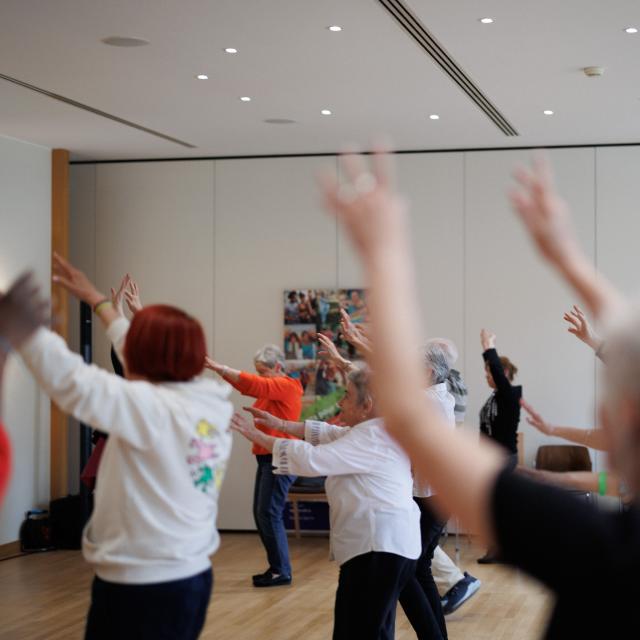
Our society is getting older. This also means that a growing part of the population has to deal with what this means for them - physically and mentally. Whether the third and fourth ages are enjoyable or not depends in large part on exercise habits - and the increasingly virtual tools that encourage them.
We are all getting older. But at what point are we "senior"? The question triggers a mild smile from Alain Brever, Director of Gero, the "Competence Centre for Ageing" and Dr Martine Hoffmann, responsible for geroResearch. For there is not, indeed cannot be, a one-word answer. In general, the umbrella term, without context, cannot be used for much, warns Hoffmann. We need to have a closer look. "When we talk about 'seniors', we are talking about a very broad age group, " says Brever. "And the different phases come with different needs. Young seniors today often don't feel old at all. But the time in retirement is getting longer, in fact we work here partly with people who have been retired longer than they have worked."
This is a trend that will most likely continue to grow. While Luxembourgers lived to an average age of around 75 in the 1990s, we now have a life expectancy of around 84. The projections continue to point steeply upwards: By 2050, the expectation could rise to an average of 90 years of life in extreme cases. In order to prevent "passive ageing" from leading to a vicious circle of cognitive stagnation and exercise, Brever emphasises, it is above all the "young senior" who must be informed about "active ageing". Mental and physical health are closely related, regardless of the number on the identity card.
You want more? Get access now.
-
One-year subscription€185.00/year
-
Monthly subscription€18.50/month
-
Zukunftsabo for subscribers under the age of 26€120.00/year
Already have an account?
Log in


